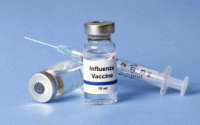Prevention from Airborne Illness
Protect Yourself Against Airborne Germs & Diseases
When school is back in session and the seasons start to change, almost like clockwork, the cold & flu season makes its famous debut and lingers on for months on end, making the rounds through schools, workplaces, families and friends. Fortunately, the common cold and the flu go away after a while and have few lasting effects. Unfortunately, colds and flus are not the only illnesses or diseases that can be caught by traveling through the air.
An airborne illness or disease occurs when a pathogenic microbe, better known as a germ, passes from one person to another as it is inhaled, mucus membranes, or leftover secretions are touched on a surface. It’s always possible to get sick any time of the year, but fall and winter seem to be the heavy hitting months-as history has shown. Luckily, there are a few ways to protect yourself against airborne illness and disease.
Understanding Cold & Flu
The incubation period for the cold and flu is just about the same; the average influenza virus (also known as the flu) is incubated for about 2 years and the amount of time for a cold is 24 to 72 hours. The flu is gone within about 5 days, while colds can possibly linger for up to about 10 days. For immunocompromised individuals, a flu or cold can last longer, up to weeks or possibly even months. Additionally, other health issues may exacerbate flu or cold symptoms. According to the Centers for Disease Control and Prevention (CDC), the majority of flu and cold germs are passed through large particle respiratory droplets (also known as saliva). When a person sneezes, laughs, or even talks, the particles travel through the air and can land on someone’s mouth or even in someone’s nose. With this being taken into consideration the very air you breathe can be considered a threat.
Coming in contact with airborne illnesses can led to widespread epidemics as the infected individual could release the virus into the air by different methods. Sounds like it would be easy enough to detect, but remember, germs are microscopic. Although microscopic, these airborne illnesses are capable of having someone emitted to the hospital and in a worst case scenario, death. Below you will find some helpful insight that may just help you as the dreadful flu and cold season quickly dawns upon us.
Prevention from Airborne Illness and Disease
There’s no doubt as to why the infected gentleman on the subway train receives scowling looks when he goes about sneezing and coughing without covering his mouth and nose because anyone around him could also be subject to becoming infected at this point. When airborne diseases and illnesses are floating around, there’s no guarantee that you will be immune from catching the germs, but you can be proactive and strive do your best to prevent them. Here are a few helpful tips that everyone can benefit from:
- Get Vaccinated: The young and old can benefit from vaccinations that fight against influenza or chickenpox. Although no vaccine is a 100% guarantee, the chances of getting sick from exposure is significantly decreased. Vaccinations alone are a major contribution for the young and elderly when considering the state of their immune system and it being weaker than that of a young adult. Since it typically can take a couple of weeks for the antibodies to take place from initial vaccination, the CDC recommends that vaccination should take place as soon as the vaccine is available. For consumers, receiving the vaccination could even mean taking action as early as October. The influenza vaccination can be done by the traditional flu shot or by the vaccinated nasal spray.
- Stay Away: Be sure to isolate yourself from individuals who may have a cold or flu as it is almost impossible, particularly if you have a job or school to attend. Even basic errands, such as a grocery shopping, can be risky during cold and flu season. Make sure you are washing your hands thoroughly and frequently, change clothing that you may have come into contact with someone infected, and even consider wearing a mask if it seems appropriate. Wearing a mask may seem extreme to some, however this simple technique can be a huge difference between long nights of restless sleep, coughing, and cold sweats compared to being well-rested and feeling your best. For those who have already been exposed to the virus, it’s particularly important to quarantine yourself from coming into contact with others in order to keep the virus from spreading. Another rule of thumb would be to see your doctor to be prescribed an antiviral drugs in order to treat the illness.
- Clean Clothes, Home, and Surfaces: Airborne germs and irritants can be found anywhere and everywhere. Take asbestos, for example, the microscopic fiber can travel on clothing or hair and can be transmitted by workers who may be in contact with the mesothelioma causing particle which can lead to serious implications. Family members may breathe in particles and over the course of 15 to 20 years, mesothelioma can become a full-blown airborne disease that is often times untreatable. The best way to prevent exposure from harmful airborne particles is to clean soiled clothes, throw out anything that might have been exposed for long periods of time, and keep the home and all surfaces as clean as possible, including heat and cooling systems. This is one airborne disease that you don’t want to take your chances with. Although comparing the cold and flu to mesothelioma can seem to be a stretch; airborne germs and irritants are a danger to every one-there are no exceptions.
This cold and flu season, act responsibly and be sure take the appropriate prevention to stay healthy and free from any illness or disease that may put your life or someone else’s life on hold. Keep in mind these helpful tactics to take healthy and preventative measures into your own hands.



